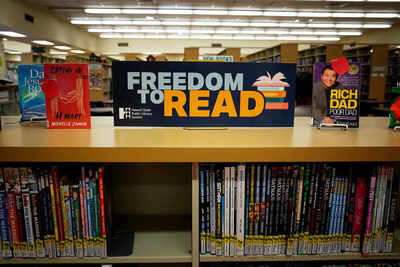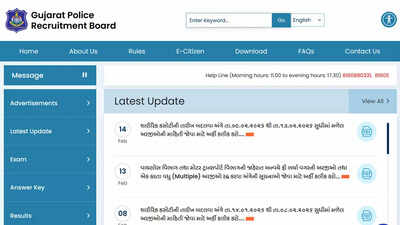Ideology vs education: Here’s why publishers and authors are fighting US book bans

At this year’s Frankfurt Book Fair, one topic dominated discussions among publishers and literary rights advocates: escalating efforts to remove books addressing themes such as LGBTQ+ lifestyles and race relations from United States schools and public libraries. These attempts, largely driven by conservative groups, have provoked a strong pushback from publishers, authors, and advocacy organisations committed to defending intellectual freedom.The trend is stark. In 2020, the American Library Association (ALA) recorded just under 300 titles facing formal challenges — requests to restrict access or remove works entirely. By 2023, that number had surged to over 9,000, reflecting an intensifying campaign to reshape what students and the public can read, AFP reports.Jon Yaged, Chief Executive Officer of Macmillan Publishers, which has faced repeated targeting in the United States, described the movement as an “ideological mission from people on the right,” characterising it as the latest manifestation of hate in culture, according to AFP.PEN International, the global literary freedom NGO, echoed these concerns, highlighting a “dramatic increase in book bans and censorship” worldwide, from Afghanistan to Russia, underscoring that the US is not isolated in its struggles over free expression.
A conservative education drive
In the US, conservative groups have long sought to counter what they perceive as a progressive influence in education. Their efforts have gained support from political leaders, including the administration of President Donald Trump. According to the ALA, the most common grounds cited in 2024 for challenging books were obscenity in materials for minors, depictions of LGBTQ+ characters or themes, and discussion of sensitive topics such as race.Titles frequently targeted include All Boys Aren’t Blue, a collection of essays on growing up as a gay Black man, The Bluest Eye by Toni Morrison, which explores sexual abuse and racial themes, and The Perks of Being a Wallflower, a coming-of-age story dealing with drug use and sex.Increasingly, the push to restrict access has shifted from local activism to legislative action. Some state legislatures have passed laws restricting access to specific titles, elected officials have released lists of books containing “explicit” material, and school districts have circulated “do not buy” lists, AFP reports.
Florida at the forefront
According to PEN, Florida recorded the highest number of restricted school books last year. Republican Governor Ron DeSantis’s education policies have included limitations on classroom discussions about sexuality and gender identity, creating a climate where book bans are particularly prevalent.Conservative organisations, such as Moms for Liberty, have defended their actions, framing them as efforts to prevent children from encountering age-inappropriate content rather than censorship, AFP reports.
Publishers and communities push back
Major publishers, including Macmillan, Penguin Random House, and HarperCollins, have actively challenged restrictions through legal channels and advocacy campaigns. In several districts, authors, parents, and students have mobilised to oppose removal efforts, demonstrating that resistance is not confined to corporate entities.Yaged of Macmillan stressed that attempts to ban books are not a new phenomenon, noting that “as long as there have been books, there have been people trying to ban books. And they haven’t won as long as we keep up the fight,” AFP reports.
Global implications
Authors are observing a wider cultural impact. Lawrence Schimel, whose works featuring children with same-sex parents have faced challenges in Russia and Hungary, told AFP that these restrictions are part of a growing global pattern. He emphasised that access to such literature remains vital, arguing that exposure to diverse experiences fosters acceptance and understanding among young readers.
The stakes for education and society
The United States’ wave of book challenges is more than a debate over literary content; it reflects a clash between ideological priorities and the principles of education. Publishers and authors view access to books as a cornerstone of intellectual growth, a necessary counterbalance to political pressures that seek to narrow the scope of knowledge.As the Frankfurt Book Fair highlighted, the fight is ongoing. For advocates of literary freedom, the battle over books is also a battle over the ideas that shape the next generation. In the words of Yaged, AFP reports, “They haven’t won as long as we keep up the fight.”





